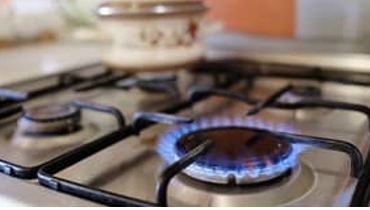Top 5 Appliance Safety Tips

The appliances in your home make life easier, but if you operate them unsafely, they could pose significant risks. Protect your appliances and make sure they don’t become hazards by following these five appliance safety tips from the experts at Mr. Appliance®.
Make sure appliances installed in damp locations are plugged into a GFCI outlet
The laundry room, bathroom, kitchen, garage, and outdoor areas are all susceptible to possible dampness or dripping water. As you well know, electricity and water don’t mix, so power cords should always be plugged into ground-fault circuit interrupters (GFCIs). This prevents electrocution by tripping the circuit if any imbalances in power flow are detected.
If you don’t already have GFCI outlets installed in damp locations around your home, make this electrical upgrade your next priority. Then, for further safety, be sure to heed the warnings of certain appliance manuals that indicate they are not for outdoor use.
Keep all cords, outlets, and electronics away from water
Some appliances are specifically designed for outdoor use, such as gas and charcoal grills. If you use any electrical appliances outside – including refrigerators, dishwashers, ice makers, power tools, and others – be sure to keep all cords and outlets dry. Weatherproof electronics help with this, as do GFCI outlets with water-tight gaskets.
Only use extension cords as a temporary solution
Extension cords pose several risks, including:
- The potential for loose connections that could cause sparks and start a fire.
- The possibility of power fluctuations that may damage the appliance.
- Increased vulnerability to water penetration that could cause electrocution.
- The likelihood of wires overheating and becoming a fire hazard when an inadequate extension cord is paired with a high-power appliance.
When choosing an extension cord for temporary use, make sure it’s the appropriate gauge for the appliance in question. The lower the gauge, the larger the wire size. For instance, a simple household extension cord for a lamp may have a 16-gauge wire while a heavy-duty cord for a window air conditioner uses a 12-gauge wire.
Length is also a factor. The longer the cord, the more power is lost enroute, a phenomenon known as voltage drop. Shorter extension cords are advised for power tools and similar equipment.
Always read the operating manual for any appliance you buy
It’s easy to assume that you know how to use your new dishwasher or washing machine without consulting the manual, but reading the instructions is important for several reasons:
- You find out whether your home’s wiring is sufficient to support the new appliance. You may need to install a new circuit to prevent overloading your existing ones.
- You learn about advanced features you might not otherwise have known about.
- You discover if the appliance is safe for outdoor use or not.
- You avoid the frustration that can come from attempting to operate a new appliance without any instructions!
Unplug small appliances when not in use
While keeping a small appliance plugged in isn’t necessarily a safety issue, you can prevent unnecessary energy consumption by unplugging them when not in use. This is because small appliances often include LED indicators, clocks, and other energy-consuming features while in standby mode.
Unplug TVs, monitors, printers, modems, routers, game consoles, phone chargers, and more to cut back on wasteful energy consumption. Just remember, it’s worthwhile to keep DVRs and similar items plugged in to prevent missing out on their automatic background functions.
For more tips on using appliances safely, or to schedule a professional repair, please contact Mr. Appliance today. We’ll help maintain your appliances and point out any dangerous operation you should know about.
 Click to call
Click to call


